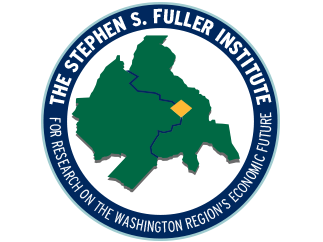From The Washington Business Journal:
Greater Washington has a jobs problem.
It’s not the overall number of jobs the region continues to add month after month, including 67,600 added on an annual basis in August, it’s that these jobs pay less and contribute less to the economy — and that can cause problems for the region, according to a new report by the Stephen S. Fuller Institute at George Mason University released Wednesday at its new annual economic forum.
The region lost 180,300 private sector jobs during the Great Recession, but has since added 411,500 jobs, which on paper seems good. But the economic value of each job lost was about $160,233 per worker, while the average value of each job gained was $109,916 per worker.
Much of this decline is because of the types of jobs being added, which include lower-paying jobs in the hospitality, food services and health care industries, according to Stephen Fuller.
“A guy washing dishes or waiting on tables or doing clerical work doesn’t have the same value add to the economy as someone splitting genes or building algorithms,” Fuller said.
For example, out of the jobs added in the last year, about 24.4 percent were in professional and business services, with an average value added per job of about $157,969 per worker. Educational and health services, leisure and hospitality and retail sectors combined to account for 55.9 percent of these new jobs, with a value add per job of $63,390 — far less.
It is these lower-paying jobs that dominated the region’s total job gain over the 12-month period, with about 80.3 percent of the region’s jobs added this year. And it’s not just that these jobs pay less, according to Fuller, it’s that they bring in less outside money to the region, in what are called “local-serving” businesses.
“We need higher value-added workers and we need those workers to be in the export business and not in the local-serving business,” Fuller said. “And we haven’t done well in either of those accounts.”
The struggle to add higher-value jobs is a long-running problem Fuller has identified. In the last few years he has identified seven nonfederal advanced industrial clusters that the region has a competitive edge in, and has urged greater regional cooperation to grow those sectors. But the latest numbers aren’t encouraging.
If Greater Washington had grown those advanced jobs at the same rate as the national average since 2014, that would have meant close to 30,000 high-paying jobs, Fuller said. Each of those jobs adds about $271,000 to the regional economy.
So what does it mean for the long term health of the economy? Fuller said it keeps growth down and can eventually hurt the housing market and the stability of the region as workers overall spend less into the local economy. “It means that the quality of life and the economic vitality of the Washington economy will be eroded,” Fuller said.
Fuller did not have any specific policy prescriptions for lawmakers or local governments, only that localities need to better understand the current economic environment in order to make better decisions when attempting to attract businesses. He did add that economic development offices need to try harder to attract better-paying jobs in high-quality sectors.
View the full story and graphics›
Copyright Washington Business Journal, reprinted with permission
